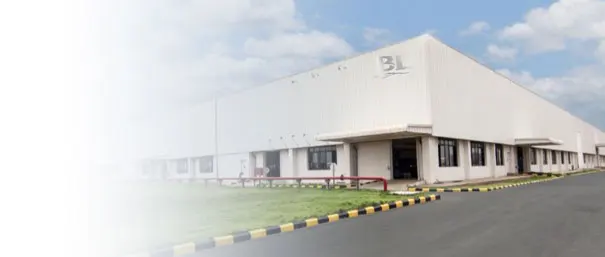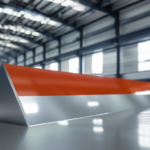Understanding BS1139 Galvanized Steel Pipes in Scaffolding
In the dynamic and often challenging environment of construction, the integrity and safety of scaffolding systems are paramount. At the core of every stable and secure temporary structure are its foundational components, particularly the steel pipes. Among the various international standards governing these essential elements, BS1139 Galvanized Steel Pipes stand as a globally recognized benchmark for unparalleled quality, exceptional durability, and steadfast safety. This comprehensive guide delves into the intricate requirements of BS1139 compliance, explores the critical factors influencing load-bearing capacity, and outlines overarching safety considerations crucial for these vital construction materials.


Adhering to stringent standards such as BS1139 is far more than a mere regulatory obligation; it represents a profound commitment to worker safety, project efficiency, and overall reliability. These specially engineered pipes, designed to gracefully endure significant stresses and environmental adversities, form the resilient backbone of temporary structures that facilitate elevated work across an expansive spectrum of construction projects, ranging from intricate residential developments to extensive industrial facilities and complex infrastructure endeavors.
What is BS1139? Deciphering the Core Standard
BS1139 is a comprehensive British Standard that meticulously specifies the requirements for steel tubes, couplers, and various fittings specifically engineered for scaffolding applications. For tubes, the standard is primarily divided into two crucial parts:
- BS1139-1.1: Steel tubes for scaffolding and temporary structures – Specifications for tubes: This section precisely outlines the mandatory requirements for tubes intended for use as structural components within temporary work structures. It rigorously addresses the material composition, precise dimensions, essential mechanical properties, and allowable tolerances for hot-rolled steel tubes. This ensures uniformity and reliability across all compliant pipes.
- BS1139-2.1: Couplers and fittings for scaffolding and temporary structures – Specifications for steel couplers and fittings: While our focus is on pipes, it’s important to note that this part governs the performance criteria and test methodologies for the steel scaffolding couplers and other connecting devices. These components are absolutely crucial for securely joining the pipes and maintaining the scaffold’s structural integrity.
For the tubes themselves, BS1139 typically mandates a precise nominal outside diameter of 48.3 mm (or approximately 1.9 inches) and a consistent wall thickness of 4.0 mm. Furthermore, it specifies stringent minimum yield strength and tensile strength values. These mechanical properties are critically important for guaranteeing that the pipe can safely manage the projected loads without undergoing permanent deformation or catastrophic failure. The foundational material for these robust pipes is generally high-quality carbon steel, which subsequently undergoes a meticulous galvanization process to significantly enhance its protective and functional attributes.
The Indispensable Role of Galvanization in Scaffolding Pipes
While the intrinsic mechanical properties of the steel itself are undeniably critical, the galvanization process is the transformative step that truly elevates BS1139 pipes, making them exceptionally suitable for demanding scaffolding applications. Galvanization involves applying a protective layer of zinc onto the steel surface, predominantly achieved through the hot-dip galvanizing method. This meticulously applied zinc coating bestows superior corrosion resistance, a paramount attribute considering that scaffolding structures are routinely exposed to severe weather conditions, persistent moisture, and a myriad of environmental pollutants prevalent on construction sites.
The comprehensive advantages derived from utilizing galvanized steel pipes are manifold and highly beneficial:
- Extended Lifespan: The durable zinc coating serves as a sacrificial barrier, actively protecting the underlying steel from the destructive effects of rust and degradation. This significantly extends the pipe’s operational life, making it a more sustainable and economically sound investment over time.
- Reduced Maintenance Requirements: Galvanized pipes inherently demand less frequent inspection, cleaning, and maintenance compared to their ungalvanized or painted steel counterparts. This translates directly into substantial long-term cost savings and reduced downtime on projects.
- Enhanced Structural Safety: By effectively preventing the structural weakening that typically results from corrosion, galvanized pipes consistently maintain their designed load-bearing capacity throughout their service life. This unwavering performance is crucial for ensuring a safer and more secure working environment for personnel and materials.
- Improved Aesthetic Appeal: While primarily functional, the uniform and bright finish characteristic of galvanized steel also contributes to a cleaner, more professional, and visually appealing appearance on construction job sites, reflecting a commitment to quality.
At BaoLi Iron & Steel Co.,Ltd, our unwavering commitment to superior quality is profoundly demonstrated in our extensive range of high-grade galvanized steel products. We ensure that every pipe we supply not only meets but consistently exceeds the rigorous requirements of BS1139, thereby guaranteeing reliable and consistent performance even in the most challenging and demanding environmental conditions. Our products are engineered for excellence, providing peace of mind to our global clientele.
Load-Bearing Capacity: The Cornerstone of Scaffolding Integrity
The fundamental purpose of any scaffolding pipe is to safely and efficiently bear and distribute various loads encountered on a construction site. The load-bearing capacity of a BS1139 compliant pipe is meticulously calculated and rigorously tested to provide absolute assurance that it can support the combined weight of workers, construction materials, and essential equipment without any risk of deformation or catastrophic failure. Several critical factors profoundly influence this pivotal aspect of scaffolding performance:
- Inherent Material Properties: The specified minimum yield strength (typically 235 N/mm²) and ultimate tensile strength (typically 340 N/mm²) ensure that the steel can withstand significant stresses and strains before undergoing permanent plastic deformation or eventual fracture. These values are fundamental to its structural resilience.
- Precise Dimensions and Wall Thickness: The meticulously consistent 48.3mm outer diameter and the uniform 4.0mm wall thickness, as stringently prescribed by the BS1139 standard, are foundational to the pipe’s inherent structural rigidity and its exceptional resistance to buckling under compressive loads. Any deviation can severely compromise safety.
- Current Condition of the Pipe: Any pre-existing damage such as dents, significant bends, or advanced stages of severe corrosion will dramatically diminish the pipe’s actual load-bearing capacity. Consequently, thorough and regular visual inspection prior to each use is not just recommended, but absolutely crucial for safety.
- Integrity of Connection Points: The strength, reliability, and integrity of the couplers (which are also comprehensively covered by BS1139-2.1) are equally vital. These components are responsible for efficiently transferring loads between individual pipes, and their failure can lead to systemic collapse.
Experienced engineers and professional scaffold designers expertly utilize these specified properties to accurately calculate safe working loads (SWL) and, ultimately, to determine the overall structural stability and integrity of the entire scaffolding system. It is a well-documented fact that overloading is a regrettably common cause of scaffolding-related accidents, thereby underscoring the absolute necessity for pipes that rigorously adhere to and are certified against published load data. At BaoLi Iron & Steel, our products are meticulously engineered for precise load-bearing capabilities, and we provide comprehensive technical support to our clients, ensuring optimal material selection and application tailored to their specific project requirements. Our commitment to quality ensures that every component contributes reliably to the structural integrity of your scaffolding.
Ensuring Safety Through Unwavering Compliance and Meticulous Quality Control
Safety in all scaffolding operations is not merely an aspiration but an absolute non-negotiable imperative. Compliance with the BS1139 standard serves as a foundational cornerstone of this comprehensive safety framework. It provides the definitive assurance that the pipes meet a globally recognized and highly respected standard for performance consistency and manufacturing excellence. Beyond the initial compliance of the manufactured product, ongoing safety is deeply reliant on rigorous quality control practices employed by the manufacturer and diligent, careful site management practices implemented by the user.
Rigorous Testing and Certification Processes
To definitively ensure BS1139 compliance, pipes undergo a series of diverse and stringent tests throughout their production lifecycle:
- Comprehensive Dimensional Checks: Precise verification of the outer diameter, wall thickness, and overall straightness of each pipe to ensure conformity with the standard.
- Advanced Mechanical Testing: This includes meticulous tensile tests to confirm both the yield strength and ultimate tensile strength, as well as impact tests to assess the pipe’s toughness and resistance to brittle fracture, especially in colder environments.
- Thorough Coating Adhesion Test: Crucial for galvanized pipes, this test confirms that the protective zinc layer is securely and uniformly bonded to the underlying steel, preventing delamination and ensuring long-term corrosion resistance.
- Non-Destructive Testing (NDT): Utilizing techniques such as eddy current testing or ultrasonic testing to accurately detect any internal flaws, imperfections, or discontinuities within the steel structure that could compromise its integrity.
Manufacturers genuinely committed to delivering excellence, such as BaoLi Iron & Steel Co.,Ltd, implement an exceptionally strict and multi-layered quality control system at every conceivable stage of the production process. From the meticulous sourcing of premium raw materials to the precision of the final galvanization treatment, each critical step is rigorously monitored and assessed. This unwavering dedication guarantees that our products consistently conform to the highest international standards, ensuring not just 100% customer satisfaction, but more importantly, paramount safety on construction sites across the globe. Our highly experienced and professional team also provides invaluable technical guidance, assisting clients in optimal steel selection and application to precisely meet their specific project needs with absolute confidence and efficiency.
Indispensable On-Site Safety Practices
Even when utilizing the most compliant and high-quality pipes, overall scaffolding safety is heavily contingent upon proper and diligent on-site practices:
- Regular Pre-Use Inspection: Every pipe must be thoroughly inspected before each use for any discernible signs of damage, excessive corrosion, or permanent deformation. Damaged pipes must be immediately removed from service.
- Correct Assembly Procedures: Strict adherence to the approved scaffolding design plans and the exclusive use of correct, compliant couplers and bracing techniques are vital for structural stability.
- Rigorous Avoidance of Overloading: Absolute and unwavering adherence to the stated safe working loads (SWL) for the entire scaffolding system and its individual components is critical to prevent collapse.
- Appropriate Storage Methods: Pipes must be stored in a manner that effectively prevents physical damage, minimizes exposure to corrosive elements, and maintains their overall condition for future use.
The Compelling Advantages of Specifying BS1139 Galvanized Steel Pipes
The strategic decision to choose BS1139 galvanized steel pipes offers a profound multitude of benefits for construction projects of all scales and complexities:
| Advantage | Description |
|---|---|
| Exceptional Durability & Extended Longevity | The powerful synergy of inherently robust steel and a robust, protective zinc coating guarantees an exceptionally long service life, even when exposed to the most aggressive and harsh environmental conditions. |
| Superior Long-Term Cost-Effectiveness | While the initial capital investment might be marginally higher than that for ungalvanized alternatives, the significant reductions in maintenance, substantially longer operational lifespan, and high reusability collectively lead to substantial long-term financial savings and a superior return on investment. |
| Unequivocal Assured Safety | Compliance with a universally recognized and respected standard like BS1139 provides an irrefutable assurance of fundamental structural integrity, consistent performance, and, most critically, an elevated level of safety for all personnel working on the scaffold. |
| Broad Global Recognition & Acceptance | The BS1139 standard is widely recognized, respected, and adopted across international borders. This global acceptance significantly simplifies and facilitates cross-border project execution, streamlines material procurement logistics, and ensures compatibility regardless of geographic location. |
| Positive Environmental Impact & Sustainability | The remarkably extended lifespan and inherent recyclability of these galvanized steel pipes contribute positively and significantly to more sustainable construction practices, reducing waste and conserving resources over the long term. |
As a distinguished and leading steel manufacturer, BaoLi Iron & Steel Co.,Ltd specializes in offering bespoke, customized solutions for steel pipes. This ensures that our esteemed clients receive products that are perfectly tailored to their project’s precise dimensions, specific grades, and unique performance requirements, whether for standard, conventional scaffolding applications or for highly specialized and complex structural challenges. Our comprehensive global service encompasses every stage, from precision manufacturing and efficient transportation to meticulous contract management, thereby providing a seamless and hassle-free experience for our clients worldwide.
Conclusion: Forging a Foundation of Strength and Unwavering Trust
BS1139 galvanized steel pipes are far more than mere tubular components; they are indispensable and critical elements that profoundly underpin the safety, structural integrity, and operational efficiency of countless construction projects across the globe. Their unwavering compliance with the most stringent international standards, combined with their inherent, robust load-bearing capabilities and significantly enhanced safety features, undeniably positions them as the preferred and most reliable choice for developing secure and resilient scaffolding systems.
For discerning industry professionals, the conscious and strategic decision to specify BS1139 compliant pipes stands as a powerful testament to an unyielding commitment to uncompromising quality and paramount safety. As a deeply trusted and established partner in the global steel industry, BaoLi Iron & Steel Co.,Ltd stands uniquely poised and ready to provide the highest echelon of quality in galvanized steel and carbon steel products. This commitment is rigorously backed by unparalleled expertise, cutting-edge technology, and a profoundly customer-centric philosophy that places your project’s success at its core. By diligently choosing certified materials from highly reputable and established manufacturers, the essential foundation for a successful, efficient, and supremely safe construction endeavor is firmly established, building trust, one meticulously crafted pipe at a time.







